Forming one of Mumbai's biggest parishes, the East Indians of Orlem have a rich past to preserve
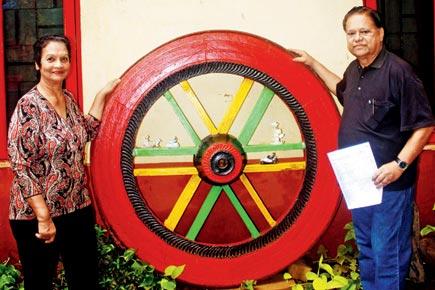
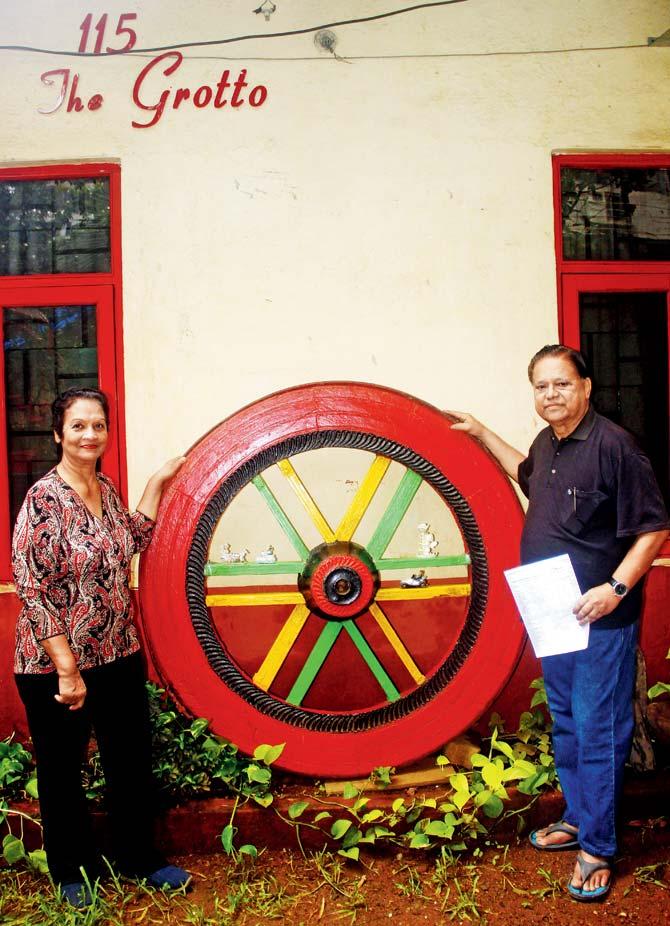
Judy and Gerald Misquitta in the garden of their home, The Grotto. He holds the receipt confirming he refuelled (on government orders) the DC-8 jet plane hijacked by the Japanese Red Army, flown into Kuwait airport in October 1977 when he was on night duty. Pics/Tanvi Phondekar
 It makes an incredibly welcome transition. Rain-soaked, I've dodged dirty nullah water nipping at my heels. But revive, in mere moments, at a sanctuary opposite Our Lady of Lourdes Church in Orlem: the tranquil grotto beside a well whose inner wall is inscribed in marble with the Memorare prayer. Within view is ex-navy man Austin Pereira's 20th Century Stores, serving cold cuts and chops washed down with draughts, long years past the century it asserts belonging to. Outside this radius, the rest of Malad shrieks in a cacophony capturing the IT hub's crazy call centre-mall-multiplex mayhem.
It makes an incredibly welcome transition. Rain-soaked, I've dodged dirty nullah water nipping at my heels. But revive, in mere moments, at a sanctuary opposite Our Lady of Lourdes Church in Orlem: the tranquil grotto beside a well whose inner wall is inscribed in marble with the Memorare prayer. Within view is ex-navy man Austin Pereira's 20th Century Stores, serving cold cuts and chops washed down with draughts, long years past the century it asserts belonging to. Outside this radius, the rest of Malad shrieks in a cacophony capturing the IT hub's crazy call centre-mall-multiplex mayhem.
ADVERTISEMENT
"Orlem" colloquially refers to Our Lady of Lourdes parish in suburban Malad, hemmed between Kandivli and Goregaon. Rimmed by rustic beach hamlets — Kharodi, Rathodi, Marve, Aksa, Madh, Chinchowli, Malwani — it's where Kolis, Bhandaris, Muslims and South Indians settled over a century ago. Orlem derives from a Portuguese oral twist to the Marathi word Valnai. "Val" meaning "turn", "nai" a small river, Valnai described a plain on the river bend.
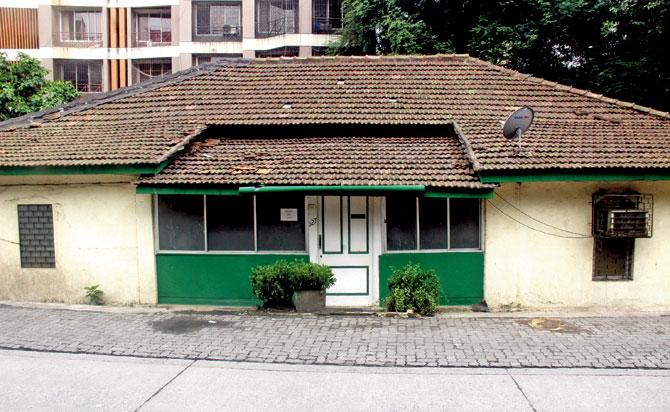
Otillia and Barses D'Souza's pre-1914 cottage, The Shelter. The D’Souzas are among the first families of Orlem, privy to three landmark century anniversaries last year: celebrating 100 years of Our Lady of Lourdes Church, of St Anne's and of Malad Station.
City lover Deepak Rao, a recent resident of Malad, ensures I meet John Pinto, North Mumbai district secretary of the NCP Seva Dal, in Dominic Colony. Walking through which is a pleasure magically distanced from the mess much of Malad typifies. Though few original cottages remain, their apartment block replacements look neat, bearing names like Carmen and Casa Angelica. John signals which doors open for some Orlem history.
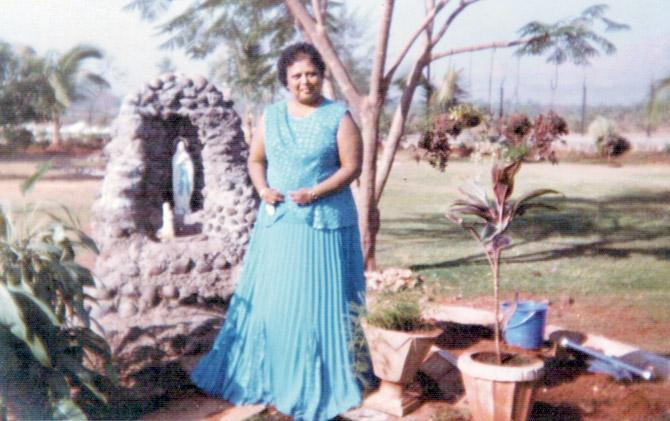
The late Bertha Pereira, founder principal of St Joseph's School in Malad
The influx of Christians from Goa, Karnataka and Kerala prompted city converts to refer to themselves as East Indians. The East Indian Association, created in May 1887, introduced these sons of the soil as East India Company employees distinct from Christians further down the west coast.
In their pre-1914 cottage, The Shelter, Otillia and Barses D'Souza cite early accounts so alluring, I'm not surprised the Orlem Social and Cultural Committee is publishing Orlem Odyssey. Recording the area's redoubtable heritage, this book launches on February 11, 2018, the feast day of Our Lady of Lourdes, one of the Virgin Mary's 18 apparitions. If paintings in the church allude to scriptural references, the entrance portrays the Mother of God appear before 14-year-old shepherdess Bernadette Soubirous in the cave of Massabielle near Lourdes on February 11, 1858.
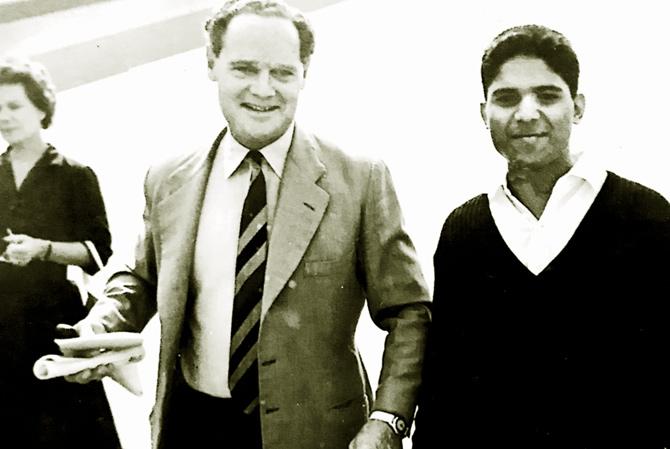
Misquitta (right) in 1963 with Group Captain Douglas Bader, the World War II aviation hero of the film Reach for the Sky, who attacked enemy aircraft from his Spitfire with a pair of metal legs, having lost his in a 1931 crash
Built as a private chapel in 1880 by Msgr Joseph Braz D'Souza, the church flock has soared from 12 families in huts in 1916 to 18,500 members. The first pastor was Fr Justin — Msgr JB D'Souza's grand-nephew and Barses' father Alfred's elder brother, who opened St Anne's School adjacent to the church.
Last year, Orlem celebrated three landmark anniversaries: 100 years of the church, of St Anne's and of Malad Station which came about thanks to the pioneering efforts of yet another Joseph Braz D'Souza — namesake of the church founder and maternal grandfather of Barses (Barses is confusingly related to both Joseph Braz D'Souzas) who convinced BB & CI Railway authorities that Malad get its own railway station, for which he obtained a First Class season ticket. Barses' paternal grandfather Ignatius Anastasio D'Souza's is the first grave near the altar in the Versova church. "He was the Patell (an extra "l" suffixed to the title) of Versova, from where my cousins boated to Orlem," says Barses. The jail in his grandfather's home could lock a man for 24 hours.
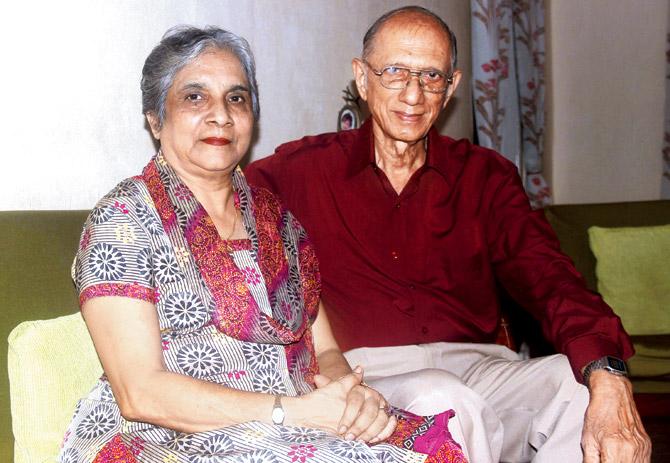
Nineteenth-century Malad lay unimaginably beyond, Bandra then considered far northern limits. People were invited to migrate to this end, lured with plots priced four to eight annas per square yard. "When we married in 1966, I never dreamt of such a terribly overpopulated Malad," says Otillia. An English teacher promoting programmes for the British Council and Trinity College, she noticed Christian families move into Orlem and Vasai from the late 1960s, flats here proving more affordable than South Bombay properties.
Barses digs up a November 1929 citation addressed to his father. Signed by house owners of Valnai, it recognises the role of Alfred D'Souza in the struggle against encroachments of the Notified Area Committee: "Verily a Demosthenes in our midst, the poor and rich know you alike; you are the balm for their distress... If Bombay has KF Nariman to defend rights and liberties of the public, Valnai village can be proud of another Nariman fighting for villagers' rights and liberties."
An old-timer as passionately invested in showcasing Orlem, Gerald Misquitta helped a team set up the East Indian Museum for Mumbai Gaothan Panchayat in Manori. The septuagenarian and his wife Judy occupy The Grotto, a traditional-style cottage with a wooden porch, tucked in a path across the church. As a boy he swam amid mangroves at Orlem Bridge, hearing foxes that prowled paddy fields. He still wakes to the warble of a green coppersmith barbet, oriental magpie robin and a golden oriole hopping lopsidedly to nurse an injured leg on his leafy verandah.
He shares riveting accounts from 28 years of service with oil giants in Kuwait before his 1990s return to Orlem once the Gulf War broke. An incident on October 3, 1977 saw ultra leftists of the Japanese Red Army fly a DC 8 jet hijacked from Tokyo into Kuwait airport. On duty that fateful night, a dazed Misquitta was ordered to refuel the plane by the government. An encounter with Group Captain Sir Douglas Bader, the RAF pilot immortalised by the film Reach for the Sky, is a special memory too. "Losing both legs in a 1931 air crash, he fought his way from a Spitfire cockpit to become a Battle of Britain hero."
Misquitta has worked hard for the first Sunday of October to be designated Thanksgiving Day for the Archdiocese of Bombay – "That's for Agera, the East Indian harvest feast, a day of thanksgiving I grew up going for in my grandfather's bullock cart. Cooking mutton khuddi and pork vindaloo, we danced to the beat of the ghumat."
Robust community ties see neighbourhood families tumble easily into each other's life. Everyone is able to advise when to arrange an appointment with Nancy D'Souza of St Joseph's School. Nancy, however, says she misses stronger bonds once pervading Orlem, and even feels a sense of alienation. Her sister Bertha Pereira opened this school as a nursery from a poultry shed ringed by tamarind trees in 1955. Their father, starting the St Dominic Choir (Bertha sang soprano solos while Nancy pitched alto for choir mistress Lea D'Souza, who happened to be Barses' sister) was proprietor of Premier Furnishing Co., catering to European clients from a shop at Stadium House, Churchgate. Nancy and her nephew Dwayne Dias are secretary and president of the school trust. Outside their office a frame borders an all-time favourite quote of mine: Tagore's "Every child comes with the message that God is not yet discouraged of man."
From Dominica Rodrigues, I learn next how her father Eugene led St Dominic Choir. He taught youngsters music every morning, followed by a workday at his Mercantile Bank job. Evenings found him back in Orlem for singing lessons, passing salt pans on the ride home in a tonga or the bumpy blue and white bus plying before BEST routes rumbled in.
I end interviewing the rather unusually named Ranas. "We claim we're blue-blooded!" chorus electronics engineer Sydney Rana and his retired stenographer sister Philomena. Their great-great grandfather hailing from Rajasthan under Khilji influence, the Mewar nomenclature of Rana stuck as his descendants' surname. The only house in a kuccha lane, ancestral Kitty Cottage, to which their grandparents came from Bandra in 1939, stood in snake-infested soil. Sydney last speared a venomous specimen in 1986 with a three-pronged stick. His pet pariah Rover expertly turned hunting dog, jumped to trap vultures and eagles.
Christmas trees in Orlem gardens towered four floors high, festooned weeks ahead of al fresco X'mas parties. The Kitty Cottage grounds sprouted guava, chickoo, custard apple and drumstick trees shading zinnia and marigold patches. Children warmed themselves against winter chills with bonfires of banana plant twigs they cut at dawn.
Abutting Cardinal Gracias Playground was a tank, initially a pond, where locals bathed and washed clothes they dried on black stones they also sprawled on to gossip, in what is D'Souza Market today. This was conducted with caution, the site being the watering hole for jackals and hyenas descending Gorai's Talzan Hill to prey on pigs in East Indian yards. "Forests filled with flora and fauna touched our doorstep," Philomena says. "Now just crossing the road is hell."
Author-publisher Meher Marfatia writes fortnightly on everything that makes her love Mumbai and adore Bombay. You can reach her at mehermarfatia@gmail.com
 Subscribe today by clicking the link and stay updated with the latest news!" Click here!
Subscribe today by clicking the link and stay updated with the latest news!" Click here!







